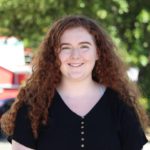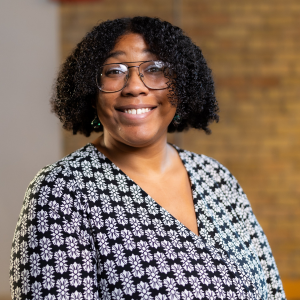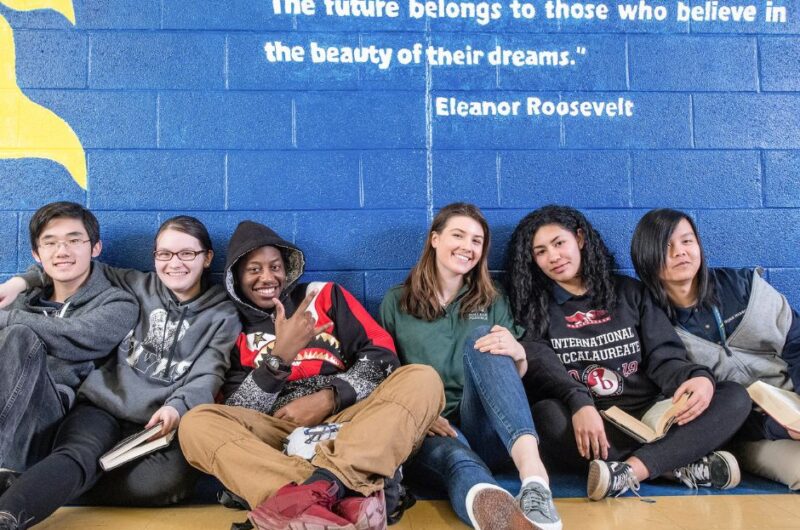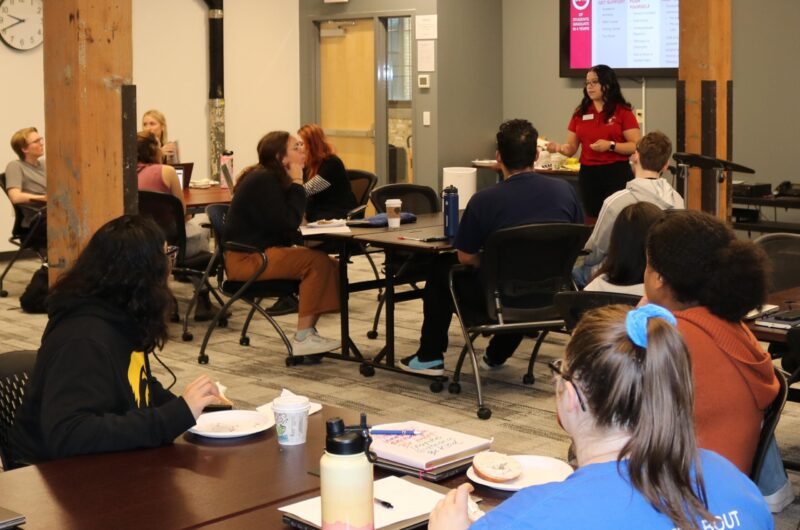 This great story was written by Anna Brigden, a second-year AmeriCorps high school coach at College Possible Washington. These stories are written each year by AmeriCorps members and then read weekly at team meetings as a way for our team to reflect, share learnings and stay connected to the students and coaches who have come before us and will come after us.
This great story was written by Anna Brigden, a second-year AmeriCorps high school coach at College Possible Washington. These stories are written each year by AmeriCorps members and then read weekly at team meetings as a way for our team to reflect, share learnings and stay connected to the students and coaches who have come before us and will come after us.
As a returning coach working with the same cohort of students, getting to know new seniors has been a meaningful experience for me. Last year, I had the entire year to get to know my students’ interests and ambitions. Students also had that entire year to get to know me, and we built a solid foundation that allowed them to feel comfortable sharing their stories, asking for support and engaging in vulnerable conversations. New students this year, however, have been faced with having to trust me with stressful processes, like applying for financial aid or asking for my feedback on their college essays, while still getting to know me. I found myself constantly wondering what I could do to be worthy of their trust, their vulnerability.
At the beginning of the school year, during my second week of being on campus, I met a senior student named Yahaira. This was my first student meeting in person. I was extremely nervous; I was used to the comfortability of one-on-one conversations from my desk at home, with my notes and script on standby if I needed them. While working with students virtually definitely had its challenges, it was also the environment in which I learned to coach and mentor students. Now that I was meeting with students outside of my comfort zone, would I meet their expectations? Would I be worthy of their trust and vulnerability?
I wasn’t sure what to expect during my first meeting with Yahaira. First conversations could vary drastically. In my experience, some students are reserved, relying on me to ask prompting questions and to guide our conversations through certain checkpoints. Other students, on the other hand, will take the reins, asking me broad questions, like “How does financial aid work?” or very specific questions, like “Does applying to UW honors give me a higher chance of getting into the CSE program?”
The morning when I was supposed to meet with Yahaira for the first time, I didn’t think she was going to show. However, I was surprised when 10 minutes after our scheduled meeting time, she came rushing into the career center. “I’m supposed to meet with someone to talk about college??” she asked, looking between me and the Gear Up coordinators sharing my desk. “That’s me!” I answered, grinning, and led Yahaira to a table on the other side of the room so we could have some privacy away from the crowded desk.
I quickly realized that Yahaira fell into the category of students who want to soak up as much information as they can. From our very first conversation, Yahaira stood out to me in the way she spoke about college. A topic of conversation I have early on with a new student is why they want to go to college, and what they are looking for from a college. I run through the usual list in my head, asking prompting questions to get a sense of what factors the student might already have in mind: location, setting, size, communities on campus, programs and activities available, etc.
When I started to ask Yahaira, she launched into speech, already having a strong sense of what she was looking for. While she was flexible on factors like location and size, there was one thing she didn’t waver on, and that she continues to discuss in our conversations: her values.
In the handful of conversations we’ve had so far, I hear Yahaira speak about wanting to be passionate about her career, wanting to be hardworking, and wanting to make a difference in others’ lives and in her community. Every time I speak with Yahaira, I am honored that she has granted me her trust and vulnerability in sharing her story and values with me. I’m reminded of my reason for being in this work — not only so that more students can access the educational and financial opportunities that their families and communities couldn’t access, but also so that all students can have the chance to explore their passions, share their values with others, and make a difference in their community.


